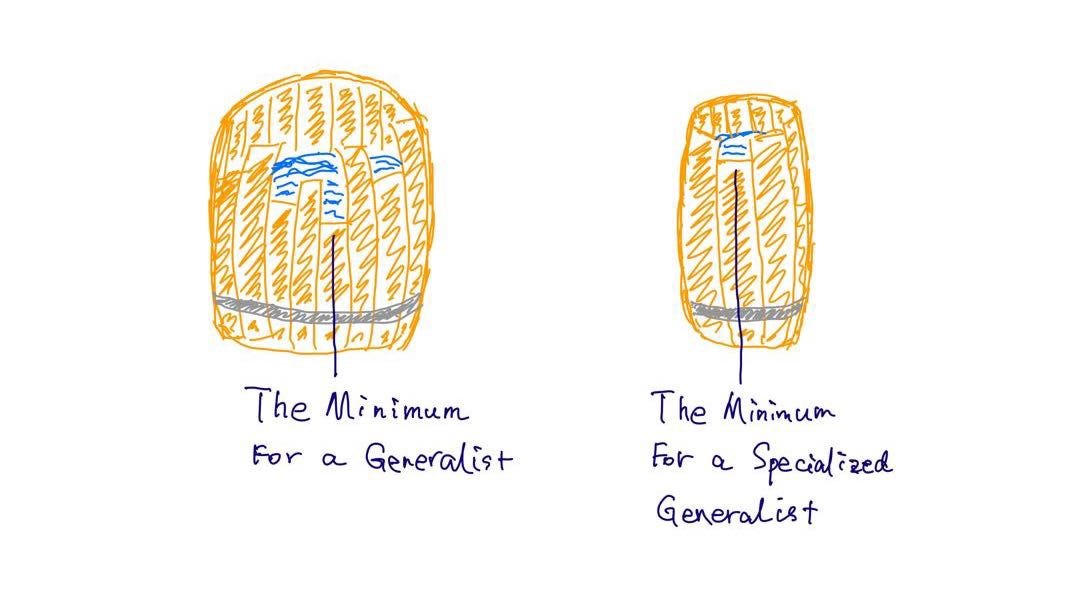“Should I be a specialist or a generalist?” This question often came up in my 1:1s and coaching sessions. My answer:
Be a specialized generalist.
Law of Multiplication of Expertise
Specialization is hard. It takes talent + 10,000 hours + luck to be in the top 4% percentile. By definition, only 4% of people can get there. On the other hand, getting to the top 20% percentile is much easier.
Imagine you become the top 20% in domain A as well as the top 20% in domain B. With 20% * 20%=4%, you then become the top 4% at the intersection of A and B.
Top 4% in one area = Unique Talent + 10,000 Hours + Luck
Top 4% cross-domain = Top 20% in Domain A + Top 20% in Domain B
Isn’t that amazing? Now you just need to identify 2 areas such that:
You can get to the top 20%
You enjoy honing in on them
The intersection of the two domains is valuable
Let me share some personal examples from the tech industry.
If you’re good at (not necessarily great at) engineering and people management, you would make a great engineering manager or director.
If you’re good at medicine and business, you make a great venture capitalist in healthcare.
I once asked several senior executives in my organization: “What’s the most valuable asset my director brings to the table?” Their answers were unanimous: “He is a strong engineering leader with great product sense.”
Outside of the tech industry, another example is hitting the bestseller list. You might have wondered “how can I become a best-selling author?” People might tell you to “find the niche market”. How to find my niche? To me, it is about finding a valuable intersection, such as career development for Asian immigrants.
Multidisciplinary Approach
Being good in multiple domains is so helpful that you will start applying knowledge across disciplines and unlock your creativity. For example, my team boosted revenue by applying behavioral psychology to the user interface optimization for search ads.
“I paid no attention to the territorial boundaries of academic disciplines and I just grabbed all the big ideas that I could.” — Charlie Munger
Liebig’s Barrel
You might say: “Wait, doesn’t this suggestion contradict Liebig’s Law of the Minimum?”
According to Liebig’s Law, growth is dictated not by total resources available but by the scarcest resource. In other words, a person’s value is dictated by the weakest area of theirs.
Here is why they don’t contradict each other.
It all depends on how wide a barrel you want to build. Generalists build wide barrels with many short staves, while specialized generalists build narrow barrels with fewer but longer staves.
In the past I tried to do a lot of things to mitigate my weaknesses, but I am not doing that any more. One of the best career advice I received from managers, mentors and coaches is as follows:
Amplify your strengths. Don’t over-emphasize on your weaknesses.
This advice is especially useful for folks who are a few years into their career and have identified their interests and strengths.
Dear readers, I would love to hear your reflection on the following questions:
What’s working for you and how can you do more of it?
What’s one thing you would start doing to amplify your strength?
What’s one weakness you would stop spending time improving?
Please reply and share your thoughts!





